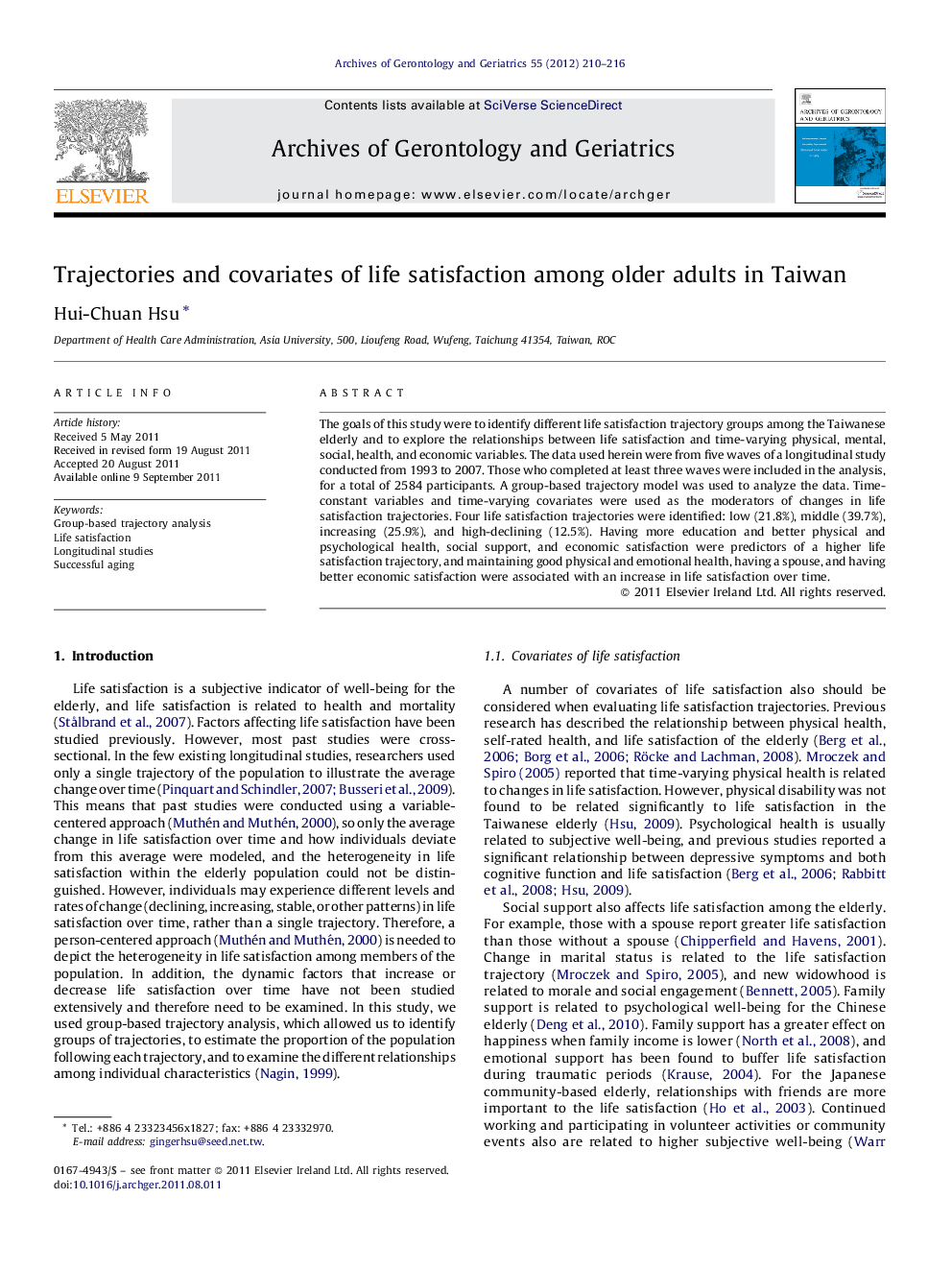| Article ID | Journal | Published Year | Pages | File Type |
|---|---|---|---|---|
| 1902888 | Archives of Gerontology and Geriatrics | 2012 | 7 Pages |
The goals of this study were to identify different life satisfaction trajectory groups among the Taiwanese elderly and to explore the relationships between life satisfaction and time-varying physical, mental, social, health, and economic variables. The data used herein were from five waves of a longitudinal study conducted from 1993 to 2007. Those who completed at least three waves were included in the analysis, for a total of 2584 participants. A group-based trajectory model was used to analyze the data. Time-constant variables and time-varying covariates were used as the moderators of changes in life satisfaction trajectories. Four life satisfaction trajectories were identified: low (21.8%), middle (39.7%), increasing (25.9%), and high-declining (12.5%). Having more education and better physical and psychological health, social support, and economic satisfaction were predictors of a higher life satisfaction trajectory, and maintaining good physical and emotional health, having a spouse, and having better economic satisfaction were associated with an increase in life satisfaction over time.
